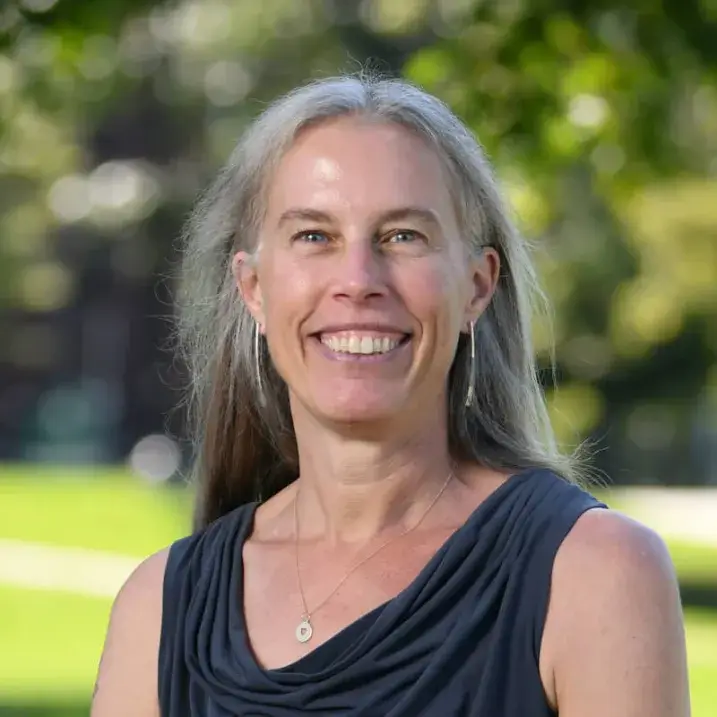85 South Prospect Street
411 Waterman Building
Burlington, VT 05405
United States
- PhD in Environmental Studies, Antioch University
- MS in Environmental Studies, Antioch University
- MAT in Earth Science, Stony Brook University
- B.S. in Marine Science, Long Island University
Department of Education, Secondary Education, Secondary Education MAT.
Areas of expertise
- Science Teaching and Learning
- Culturally Sustaining Pedagogies
- Equitible and Inclusive Curriculum, Instruction and Assessment
- Project Based Learning
- Place Based Education
- Nature-Based Social Emotional Learning
BIO
Dr. Keller utilizes a participatory, culturally sustaining framework that supports learners in courageously exploring the assumptions of any curriculum through multiple lenses. Their teaching involves pertinent questions and guiding students toward their own inquiry grounded in their experiences. Their work with graduate and undergraduate students is at the intersection of culturally responsive pedagogies and universal design for learning, ensuring equitable and inclusive instruction and assessment for all learners.
Throughout their teaching and learning, they invite students to ask how we can all work together to create a better future for everyone. They make connections beyond the classroom and campus by grounding learning in practical place based learning, sparking curiosity and unpacking stories that are told and not told in curricula. Teaching with an intersectional critical perspective, they elevate students’ awareness of the limited and damaging narratives of Western society, economics, and politics that permeate many curricula.
Dr. Keller's research integrates nature-based mindfulness practices in the classroom. They prioritize a collaborative, participatory approach that centers on participants' experiences and concerns within their own communities. They rely on participatory action research (PAR) to work closely with teachers, students, and community members to effect meaningful change and to evaluate the efficacy of programs and interventions.
Courses
- EDSC 5209 MAT Practicum in Teaching
- EDSC 6991 MAT Internship: Student Teaching
- EDSC 4991 Internship: Student Teaching
- EDSC 2060 Curriculum, Instruction, and Assessment
Publications
Awards and Achievements
- Climate and Equity Fellowship, TERC, 2023-2024
- Presidents Doctoral Fellowship, Antioch University, 2019-2021
- New York State Master Teacher Award, State University of New York, 2016-2020
Bio
Dr. Keller utilizes a participatory, culturally sustaining framework that supports learners in courageously exploring the assumptions of any curriculum through multiple lenses. Their teaching involves pertinent questions and guiding students toward their own inquiry grounded in their experiences. Their work with graduate and undergraduate students is at the intersection of culturally responsive pedagogies and universal design for learning, ensuring equitable and inclusive instruction and assessment for all learners.
Throughout their teaching and learning, they invite students to ask how we can all work together to create a better future for everyone. They make connections beyond the classroom and campus by grounding learning in practical place based learning, sparking curiosity and unpacking stories that are told and not told in curricula. Teaching with an intersectional critical perspective, they elevate students’ awareness of the limited and damaging narratives of Western society, economics, and politics that permeate many curricula.
Dr. Keller's research integrates nature-based mindfulness practices in the classroom. They prioritize a collaborative, participatory approach that centers on participants' experiences and concerns within their own communities. They rely on participatory action research (PAR) to work closely with teachers, students, and community members to effect meaningful change and to evaluate the efficacy of programs and interventions.
Courses
- EDSC 5209 MAT Practicum in Teaching
- EDSC 6991 MAT Internship: Student Teaching
- EDSC 4991 Internship: Student Teaching
- EDSC 2060 Curriculum, Instruction, and Assessment
Publications
Awards and Achievements
- Climate and Equity Fellowship, TERC, 2023-2024
- Presidents Doctoral Fellowship, Antioch University, 2019-2021
- New York State Master Teacher Award, State University of New York, 2016-2020
Associations and Affiliations
- National Science Teachers Association
- North American Association of Environmental Education
- Association for Environmental Studies and Sciences
- New York State Science Teachers Association
- Association for Supervision and Curriculum Development
- Coalition for Outdoor Renaming and Education
